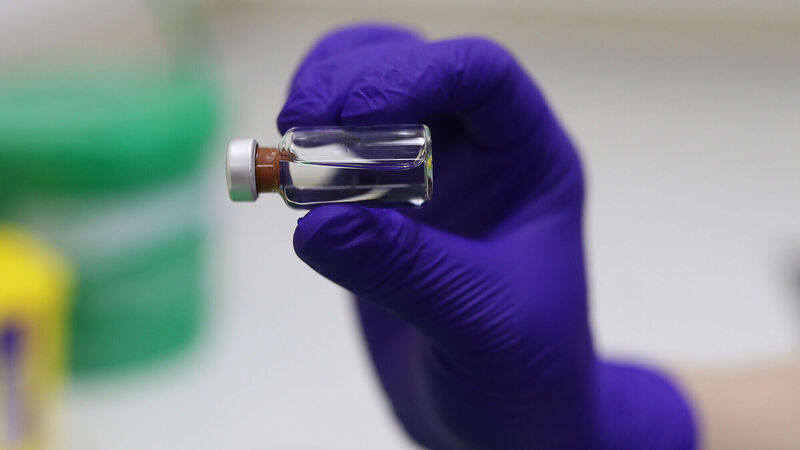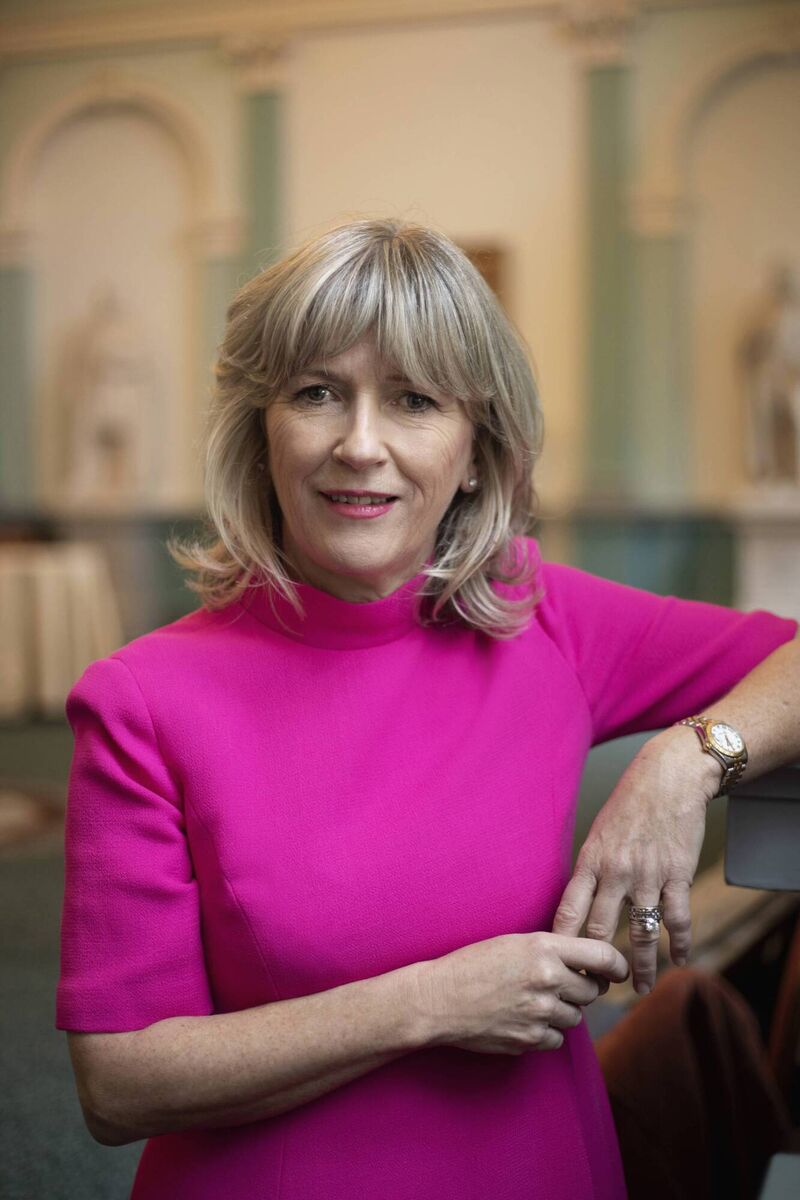Comment: We're in this together when it comes to a successful vaccination programme

The rapid development of Covid-19 vaccines does not mean that the process was rushed, according to Professor Mary Horgan, who added that vaccines are evaluated more than any medication we take or medical device we use. FIle Picture: Yui Mok/PA Wire
Vaccination and clean water have been the most successful public health intervention of the past century.
Vaccination programmes have saved millions of lives since their inception more than two centuries ago following Edward Jenner’s scientific observation that cowpox virus protected against smallpox.
While most medicines treat or cure diseases, vaccines prevent them and hence the old adage comes to mind that “prevention is better than cure”. Vaccines not only prevent serious infections but they can also prevent some cancers.
Vaccine development is a key component of controlling a pandemic working alongside human behaviour and testing, tracing and quarantining.
Vaccines work by stimulating our immune systems to produce antibodies which protect us from getting infections. Specific vaccines are required for each infection.
Different methods are used for developing vaccines. Why is this important? It is important that every citizen in every country has an equal opportunity of being vaccinated, once adequate supplies are available. The more the world is vaccinated, the safer it is for all of us.
Affordability, scalability and the practicalities of administration play important roles in vaccine development. In addition, our immune systems respond in different ways depending on our age and whether we have underlying medical conditions.
So having several safe and effective vaccines is an essential part of any country’s vaccination strategy.
Before a vaccine is ever given to a person or population, the European Medicines Agency (EMA) along with Ireland’s Health Products Regulatory Authority (HPRA) oversees the scientific development process to ensure that each one is safe and effective.
Once a vaccine is licenced, these agencies monitor their use and safety in each country. Indeed, vaccines are evaluated more than any medication that we take or medical device we use.
But is not just about vaccines, it is about the implementation of a new vaccination programme in Ireland. This has many logistical challenges such as the supply chain, storage, administration, prioritizing groups most likely to benefit from a vaccine if supplies are limited and ongoing surveillance.
The high level taskforce set up by the Taoiseach is tasked with this body of work. Professor Brian MacCraith is leading the national effort by convening the experts in each of these many fields to ensure that it is done safely and effectively.
Ireland has a long track record of successfully implementing vaccination programmes, most recently with HPV vaccine and meningococcal C vaccine. As a frontline doctor, I have seen the benefit of vaccines in our population. Over a decade ago, meningococcal disease caused severe disease and sometimes killed our children and our young people. The introduction of a vaccination programme for this infectious disease has saved many lives since then.
Today, entire generations have been saved from the misery of many vaccine-preventable diseases. Perhaps, vaccines have become a victim of their own success because they are so effective at eliminating diseases from which people suffered, and all too often, died.
Polio is unknown to most of us, but our parents and grandparents recall the crippling effects of the polio outbreak in Cork during the summer of 1956. The WHO declared the success of the vaccination eradication for programme for Smallpox in 1980.
With the introduction of an effective vaccine for Diphtheria in 1953, only 2 cases of the disease have been reported in nearly 50 years. We forget about the devastating effects of infections like congenital rubella have on our new-born babies or measles has on our children because MMR has been so effective.
With time it is hoped that cancer of the cervix will be eradicated thanks to HPV vaccination. This will be a major victory for women’s health.
For vaccines to be effective in protecting the health of our population, the uptake needs to be high. With COVID-19 vaccines, 60-75% of our population needs to be vaccinated. Vaccination is the “gift of giving”. Being vaccinated protects us individually but it goes far beyond that.
It protects our families, our relatives, our communities and our country from infections that can cause serious illness and death. Vaccines prevent the serious effects of the disease and prevent transmission of infection from one individual to another.
Indeed many of the infectious diseases that are prevented by vaccines affect the most vulnerable in our society; the young, older people, those with cancer and chronic diseases.
So while many of us may not feel that we are in a high risk group for infections such as influenza and Covid-19, each and every one of us knows someone who is. By protecting ourselves, we protect each other.
The human story of the success of vaccination is very important. The wonderful Laura Brennan was an steadfast advocate for HPV vaccination in Ireland.
This young lady told her story and continued the important work of promoting a vaccine that prevents cancer in women despite her illness. Laura humanised the devastating impact of a disease that is now preventable through vaccination.
Her legacy has been the success of a vaccination programme that will save so many young lives, an achievement that few of us will attain in our lifetime.
The development of vaccines against Covid-19 has been a global effort given the health, societal and economic impact of the pandemic. The rapid development of a safe and effective vaccine does not mean that it was rushed.
Many of the technologies that are used to make Covid-19 vaccines are tried and tested and are safe and effective in preventing other infections.
Each new vaccine is subject to the rigours of scientific and regulatory oversight from the EMA, HPRA and America’s FDA to ensure that the vaccine is safe and effective. No corners will be cut in this process.
The role of Ireland’s HPRA “is to protect and enhance public and animal health by regulating medicines, medical devices and other health products” and that is exactly what they have done and will continue to do.
Vaccine hesitancy is a complex issue and is frequently a delay rather than a refusal of vaccines.

It is important that people’s concerns are listened to. Clear and concise information based on science rather than anecdotes is important, outlining the benefits of vaccination to us individually and collectively.
Numerous reports have shown that general practitioners, practice nurses, public health doctors and nurses continue to be a reliable and trustworthy source of information on vaccination.
They have an important role in educating people and answering their queries and concerns. Confidence in the system that is responsible for the safe and effective delivery is essential.
Convenience of the time and place of administration whilst being cognisant of diverse cultural, generational and language differences increases uptake. And finally an understanding that we are truly “all in this together” when it comes to vaccination.
While an individual may be in a low risk group for Covid-19, we all interact with those who can become severely ill or die. The “all in this together” message will get our community, our country and our world up and running again.
- Professor Mary Horgan President of the Royal College of Physicians of Ireland, Consultant in Infectious Diseases, Cork University Hospital















